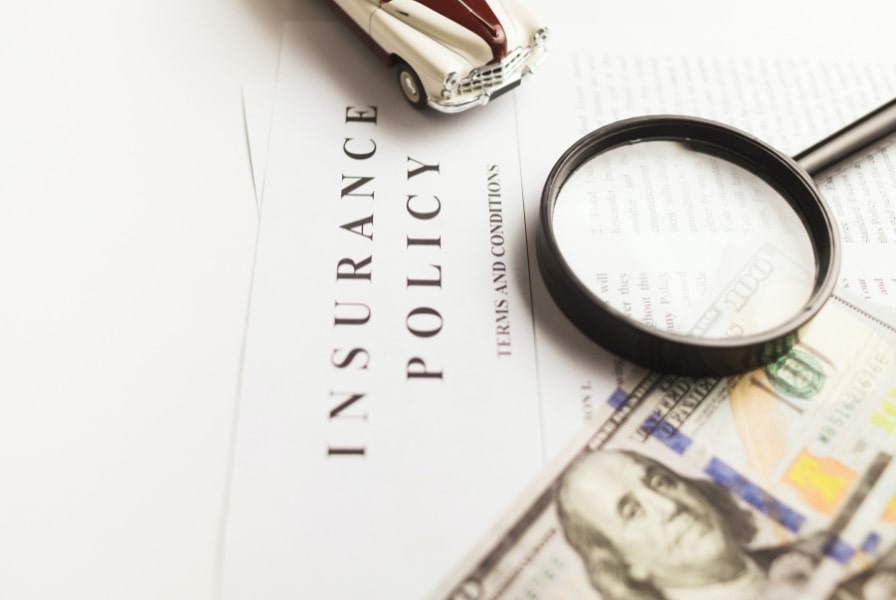
We can’t do without our ears. They help us to communicate daily with our loved ones, enjoy music & the sounds of nature, and stay vigilant. Imagining a life without ears seems terrifying. But the harsh reality is some of us may need hearing aids at one point.
Usually, people are reluctant to get hearing aids mainly due to the cost. And sometimes, insurance does not offer enough coverage. What do you do? Fortunately, there’s help available.
If you experience such a situation, hearing aid financing is your next option.
How Much Do Hearing Aids Cost?
People have different hearing needs, and not all hearing aids function or sound the same. So there’s no specific range, but on average, hearing aids can cost anywhere between $1000 and go up to $6000.
What Factors Affect The Price Of Hearing Aids?

Like all the other things you buy, there’s the good, better, and best category. The more high-tech features, the more expensive such hearing aids will be. These are the two main factors affecting the price of hearing aids:
- Features matter as they can significantly enhance everyday tasks and life. But they also increase the cost.
- Professional services that include selection, fitting, adjustments, and maintenance of the hearing aids are a part of the cost.
What Does Hearing Aid Financing Mean?
As mentioned earlier, many people need hearing aids, but not all can afford to pay for them. Hearing aid financing is a collective term for patient financing options.
Hearing aid financing options not only help cover expenses of aiding technology but for hearing loss too. Brands offering hearing aids are aware of the high costs. That is why most of them don’t expect you to pay upfront. They often have hearing aid financing options to help you divide the cost and pay over monthly installments suited to your situation.
Hearing Aid Financing Options To Consider.

1. Private Health Insurance – Know that hearing aid coverage for adults is not mandatory in all states. A few insurance companies cover the cost partially and sometimes entirely. A few others may not provide any cover at all. You can find out about your plan coverage by calling the service phone number on your insurance card. Ask them the following questions:
- What health plan benefits are there for hearing aids?
- Do you need to use specific providers? If so, ask for a list of providers in your area.
- Do you need to pay the total amount to the provider and submit the paperwork for reimbursement?
- Is the benefit limited to specific hearing models or technology?
- Are there any criteria to be eligible for coverage?
2. Flexible Medical Spending Plans – Some employers sponsor medical plans, so check with your company. It allows you to put aside a part of your earnings on a pre-tax basis. You can use the money throughout the year to pay for medical bills your insurance doesn’t cover. Using pre-tax spending dollars is an incredible way to compensate for hearing aid expenses.
3. Medicaid – Not all but most state Medicaid programs either partially or entirely cover costs for hearing aids. The eligibility conditions vary depending on your state program. Besides, your hearing specialist can help determine whether you can access this coverage or not. Check out www.benefits.gov to learn more.
4. Loans – The moment you learn you need hearing aids, head to your nearest hearing center and discuss your financial status. You can apply for traditional hearing aid loans, given that you fulfill the criteria.
5. Medicare – It does not typically cover hearing aids or routine hearing evaluation. But in a few cases, if a physician asks to examine your condition by a licensed audiologist, it may be covered by Medicare Part B. Medicare Advantage Plans may cover hearing aids. Check with your doctor or hearing specialist to confirm or get more information.

6. Veteran Benefits – Veterans can access audiology services and hearing aids under the Veteran’s Administration program. Veterans should contact the nearest VA facility to gather more details.
7. Vocational Rehabilitation Programs – State Vocational Rehabilitation Programs can offer financial assistance if you need hearing aids for your employment. You can look up the www.disability.gov/benefits website to locate rehabilitation programs in your state.
8. In-house Financing – Most licensed hearing specialists offer financing programs and easy patient payment plans. In-house financing assistance through third-party lenders like Denefits, which has a 100% approval rate, is likely the most popular form of financing.

9. Charitable Institutions – Many hearing aid companies sponsor foundations to provide hearing aids to those patients who can’t afford them.
Points To Keep In Mind Before Using Any Hearing Aid Financing Option.
1. Financing On Every Transaction
It’s a mistake not to ask for financing on every transaction because unforeseen circumstances can occur at any time. To avoid further complications, you must have the option of getting financing on every purchase.
2. Easy To Access
Technology is a part of our everyday life, and hearing aids are no exception. Look for a company that uses technology to respond instantly to the needs of its patients
3. Approval Rates
Almost all companies have a history. So check out reviews from previous clients and decide better. Don’t hesitate to ask for approval rates before signing a contract.
4. Providers’ Fees
Every institution charges some sort of fee each time you use its services. For instance, every credit card provider gets a small cut whenever someone swipes their card to pay for any product or service. Hearing companies charge this fee to your clinic. You don’t have to agree on a high provider fee than what you can comfortably pay.
5. Penalty Rates
Penalty rates are a justifiable practice but not unreasonable fees. High fees will only complicate everything if you can’t pay on time because of an unavoidable situation.

6. Customer Service
You’ll have to contact the hearing institution often, and bad customer service can be disastrous for you.
Hearing Aid Financing With Bad Credit.
Many Americans struggle with bad credit, which often makes it harder to get a loan. It is particularly frustrating when you need a medical loan. Several medical financing companies specialize in medical cases.
There are providers like Denefits that help patients get financing no matter what their credit score is. If this is your situation, look for practices that use Denefits so you can get the medical care you need when you need it.
Moving Forward
Hearing loss is a terrifying experience for anyone going through it. On top of that, high hearing aid costs can add more problems and prevent some individuals from taking timely action. Delayed care can create trouble for your health and finances.
We hope all the information shared above motivates you to get help from the right place because it’s available. Fortunately, hearing aid financing makes it easy for everyone to access necessary care and equipment without burdening themselves financially.
Look for certified hearing aid centers nearby that may be using services from providers like Denefits to get a positive experience. Affordable hearing aid financing can allow you to pay for your medical needs comfortably over time in a manageable manner. So don’t wait anymore. Get help right away.
If you’re interested to know more about Denefits, simply visit denefits.com or download the app today to connect and a representative will assist you.
The post Hearing Aid Financing: What Are My Options? first appeared on .